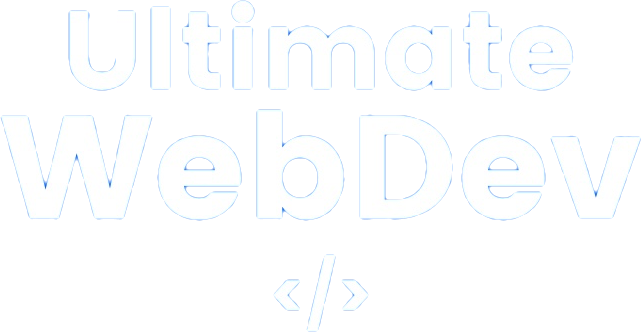JavaScript Functions
JavaScript functions are a fundamental building block of the language, allowing developers to encapsulate reusable pieces of code, make their programs more modular, and create more organized and maintainable code
What is a JavaScript Function?
A JavaScript function is a block of reusable code that performs a specific task or calculates a value. Functions allow you to divide your code into smaller, more manageable pieces, making it easier to read, understand, and maintain. Functions are a core concept in programming and are used extensively in JavaScript for a wide range of tasks.
Defining Functions
Function Declaration
In JavaScript, you can define functions using the function keyword, followed by the function name, a list of parameters enclosed in parentheses, and the function body enclosed in curly braces.
function greet(name) {
console.log(`Hello, ${name}!`);
}In this example, we’ve defined a function called greet that takes a single parameter name and logs a greeting to the console.
Function Expression
You can also define functions using function expressions. In this case, you assign a function to a variable. Function expressions are often used when you need to create anonymous functions or when functions are assigned to variables dynamically.
const greet = function(name) {
console.log(`Hello, ${name}!`);
};Here, we’ve defined an anonymous function and assigned it to the greet variable.
Invoking Functions
Once you’ve defined a function, you can invoke or call it to execute the code within it. To call a function, simply use its name followed by parentheses, passing any required arguments inside the parentheses.
greet("Alice"); // Outputs: Hello, Alice!
Function Parameters and Arguments
Parameters
Function parameters are placeholders for values that the function expects to receive when it is called. They are defined in the function declaration or expression and act as local variables within the function.
function add(x, y) {
return x + y;
}In this example, the add function takes two parameters, x and y.
Arguments
When you call a function, the values you pass to it are called arguments. Arguments are assigned to the corresponding parameters in the function definition based on their order.
const result = add(5, 3); // The arguments 5 and 3 are assigned to x and y
console.log(result); // Outputs: 8
Return Values
Functions can return values using the return statement. When a function encounters a return statement, it immediately exits, and the specified value is sent back to the caller.
function multiply(x, y) {
return x * y;
}
const product = multiply(4, 7);
console.log(product); // Outputs: 28
Function Types
JavaScript functions come in various forms and serve different purposes. Here are some common types of functions:
Named Functions
Named functions are defined with a name and can be called by that name.
function sayHello(name) {
console.log(`Hello, ${name}!`);
}
sayHello("Bob"); // Outputs: Hello, Bob!
Anonymous Functions
Anonymous functions have no name and are often defined within another function or as function expressions.
const greet = function(name) {
console.log(`Hello, ${name}!`);
};
greet("Alice"); // Outputs: Hello, Alice!
Arrow Functions
Arrow functions provide a concise syntax for defining functions. They are particularly useful for simple, one-line functions.
const add = (x, y) => x + y;
const result = add(3, 5);
console.log(result); // Outputs: 8
Callback Functions
Callback functions are functions that are passed as arguments to other functions and are executed when certain events occur or conditions are met.
function doSomethingAsync(callback) {
setTimeout(function() {
console.log("Task is done.");
callback();
}, 1000);
}
function onComplete() {
console.log("All tasks completed.");
}
doSomethingAsync(onComplete);Scope and Function Scope
JavaScript has function-level scope, which means variables defined inside a function are not accessible outside of that function. This concept is known as “local scope.”
function showMessage() {
const message = "Hello from inside the function!";
console.log(message);
}
showMessage(); // Outputs: Hello from inside the function!
console.log(message); // This will result in an error
Variables defined outside of any function have “global scope” and can be accessed from anywhere in the code.
const globalVar = "I'm global";
function showGlobalVar() {
console.log(globalVar);
}
showGlobalVar(); // Outputs: I'm global
Function Hoisting
In JavaScript, function declarations are hoisted to the top of their containing scope. This means you can call a function before its actual declaration in the code.
sayHello("Alice"); // Outputs: Hello, Alice!
function sayHello(name) {
console.log(`Hello, ${name}!`);
}
However, function expressions are not hoisted in the same way, so you cannot use them before they are defined.
Best Practices for Functions
To write clean and maintainable code, consider the following best practices when working with functions:
Use Descriptive Names: Choose meaningful names for your functions that convey their purpose.
Keep Functions Small: Aim for functions that do one thing well. If a function becomes too large, consider breaking it into smaller functions.
Avoid Global Variables: Minimize the use of global variables as they can lead to unexpected side effects and make code harder to maintain.
Document Your Functions: Use comments or JSDoc comments to document your functions, including their purpose, parameters, return values, and any side effects.
Use Function Parameters: Pass data to functions through parameters rather than relying on global variables. This makes functions more reusable and easier to test.
Return Explicitly: Always use the
returnstatement to return values from functions. Avoid relying on implicit returns, which can lead to confusion.Test Your Functions: Write tests for your functions to ensure they behave as expected and catch any regressions when you make changes.
Avoid Side Effects: Minimize side effects within functions. Functions should ideally take inputs and produce outputs without modifying external state.
JavaScript functions are a crucial part of the language, enabling code reusability, modularity, and organization. By understanding the different types of functions, their scopes, and best practices for writing them, you can become a more effective and efficient JavaScript developer. Functions are the building blocks of your applications, and mastering them is essential for building robust and maintainable software.

